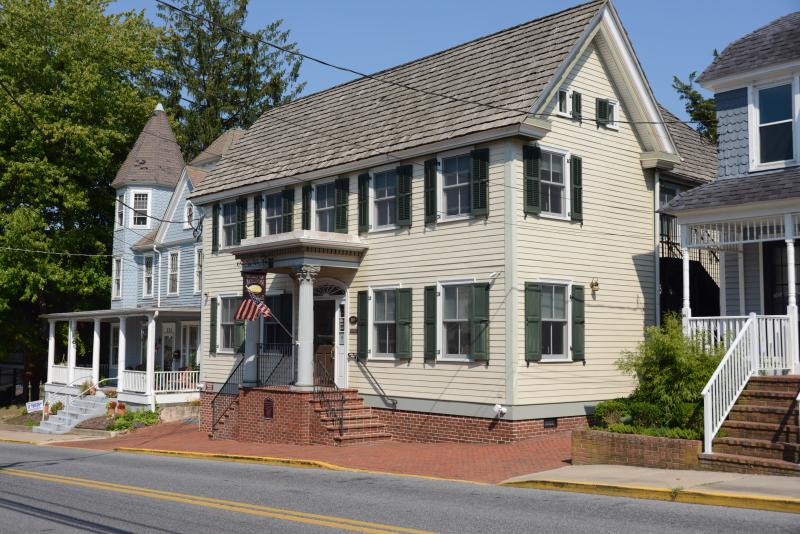Milton finance committee gets first look at budget

The Milton Finance Committee conducted its first review of the town’s proposed fiscal year 2025 budget July 29, allowing officials to further discuss and explain their rationale for a proposed 30-plus percent property tax increase.
Town Manager Kristy Rogers said the increase was done as part of her plan to not use reserve funds or transfer tax revenues to balance the budget, as the town had to do in fiscal years 2023 and 2024. Pointing to a report by consultants PFM Consulting of Philadelphia, she said the town’s expenses are close to outpacing revenues. Because the town did not raise taxes for many years, it is only now catching up to where it needs to be, particularly as expenses associated with new developments, such as Cypress Grove, the Granary at Draper Farm and later, Scarlet Oaks, begin to come online. In addition, Rogers said, the town will be able to rebuild its reserve fund in anticipation of future capital projects, such as a new municipal building or replacing water mains, as that reserve money is now not being used to plug holes in the budget.
Committee member Perry Higgs asked why an increase so large instead of a more incremental increase.
“I understand it, and I agree with the concept,” he said. “It is a quantum step for the town, and that concerns me. It’s going to be a substantial ask.”
Rogers responded, “We can look at other scenarios, but, again, my focus is, we have done that and it’s not working. We’ve taken the approach of smaller tax increases and reserves, and it’s not pushing us past to where we have to be long term. If we just do 10% this year, we’re still going to have to use reserves. And if we keep those bad habits up, we’re going to be out of reserves. We need to make decisions now so that the future of Milton doesn’t have these same restraints.”
Rogers said the increase was also a way for the town to minimize risk associated with major residential developments. While the town will reap revenues from transfer taxes, property tax revenue, building permits and administrative fees, among other things associated with those developments, she said with the exception of Cypress Grove, which is nearly complete, the town won’t begin to take in those revenues until later.
The finance committee meeting began with Rogers giving the basic overview presentation she gave to town council July 18. She said the town’s revenues are set to be $4.2 million in FY 2025, versus $3.8 million in expenses. However, $350,000 of that revenue is restricted in its use, so the town’s actual budget surplus for this year is a little more than $13,000.
Part of the confusion over the actual property tax increase lies in how it was presented. While an increase was recommended as part of the presentation to council, the actual number of the increase was not there; PFM Consulting recommended a minimum 10% increase. The actual number is within the town’s fee schedule, with the rate shown at $0.434 per $100 of assessed market value, up from $0.324 in FY 2024. The rate is not expressed as a percentage. Discussion of the rate by the committee didn’t start until nearly 45 minutes into the nearly two-hour meeting.
Rogers later said the increase was about 30%; Mayor John Collier said it was 33% by his calculations; Higgs said at the meeting that the increase was 34%. The FY 2024 rate was a 9% increase, which followed a 17% increase in FY 2023. The 30% increase for this year is projected to bring the town $2.5 million in revenue.
Among other fee increases for FY 2025 are a 10% increase in the water availability fee, up to $49.50 per quarter, and a $10 increase in the trash fee, from $70 per quarter to $80 per quarter.
During her presentation to the committee, Rogers said there are some unseen expenses the town could incur, namely compliance with a new federal Environmental Protection Agency rule regarding lead and copper pipes. She said the town is working to comply with the EPA’s rules by a Wednesday, Oct. 16 deadline. The rule states that any service line that contains lead must be replaced at the town’s expense, not the property owner’s. Rogers said the Oct. 16 deadline will just be the inventory of how many lines containing lead are in town, but the cost of replacing those lines is unknown. She said unfunded mandates like this are the reason for keeping reserve funds.
The budget will be reviewed by town council at 6:30 p.m., Monday, Aug. 5, prior to a public hearing that will be held Monday, Aug. 19. The finance committee will hold a second meeting at 3 p.m., Monday, Aug. 22, for a final review before making its recommendation to council. The budget will need to be approved and in place by Monday, Sept. 30, prior to the new fiscal year beginning Tuesday, Oct. 1.
Documents related to the budget can be viewed at milton.delaware.gov/finance-department-documents.
Ryan Mavity covers Milton and the court system. He is married to Rachel Swick Mavity and has two kids, Alex and Jane. Ryan started with the Cape Gazette all the way back in February 2007, previously covering the City of Rehoboth Beach. A native of Easton, Md. and graduate of Towson University, Ryan enjoys watching the Baltimore Ravens, Washington Capitals and Baltimore Orioles in his spare time.





















































